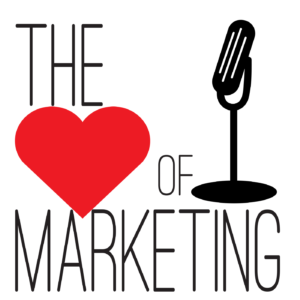Ideas that don’t fly often start with a solution in search of a problem.
But ideas that break through and disrupt markets start with identifying a problem that’s begging for a solution, and then imagining what might be.
That doesn’t come from data off of a spreadsheet. It is born from insight that makes connections others don’t notice.
“Mark Zuckerberg didn’t invent online social networks,” notes Bernadette Jiwa. “And James Dyson didn’t patent the first vacuum cleaner. Someone else was there with the ideas first. But they had an inkling about how to breathe new life into those products by making them meaningful to those who would use them.”
Jiwa digs into the idea of how big ideas come and how innovations happen in her fascinating new book Hunch: Turn Your Everyday Insights into the Next Big Thing.
I had the opportunity to talk with her about it recently on The Heart of Marketing. Here are edited highlights from that conversation.
What is a hunch in the context of business innovation?
A hunch in the context of what I’m speaking about happens because we practice recognizing patterns. And we do that by being curious and noticing problems worth solving, and doing that with empathy.
That’s what drives discovery and brings about the most successful innovations. They’re not just ideas in isolation.
Your hunches are based on something. And usually it’s something that you’ve noticed in the world or in the environment as something that’s happening that shouldn’t be, or something that’s not happening that should be. They don’t just come out of thin air. They are a result of a behavior that we can cultivate.
What inspired you to write a book about the significance of hunches?
I was watching clients and colleagues just sit on their hands while their great ideas weren’t executed upon. That was one of the things.
Then seeing people in this digital world today all the time saying, “Well, we have no proof for this, so we’re not going to execute on it. We’re not going to even try and test it.”
So the move to data and just using data as a crutch was another big driver for me that just seemed to make no common sense at all. That was the inspiration really.
We hear so much about data-driven marketing today. But sometimes it can get in the way of creative thinking, can’t it?
Absolutely. I think we can think about data in a couple of ways. There are different kinds of data, right? There’s data on someone’s face when you see their reaction to a product or a service, or anything in the real world. So it’s not just about measuring clicks.
The other piece of it is that we need a balance. I was just reading a great article today about how in the U.S. presidential election Hillary won the numbers game. But she didn’t win the mood. She had all the data, you know, just a mountain. But it wasn’t enough, because she wasn’t there taking the polls in different ways. That was just one tiny slice of what was happening in the real world. So we can rely on data way too much.
It doesn’t tell the whole story.
Absolutely not. You know, thinking about innovation and about the people we really admire, the innovative super successful entrepreneurs, the people we want to emulate. They look for data eventually. But that isn’t what ignites their interest in solving problems.
In the book you also talk about our reliance on technology and how that can become an enemy of insight.
Yeah. If you look around you and think about what we’re doing all day, every day, you don’t have to travel very far in public transport or walk along a city street for very long to see what I’m talking about. The illustrations are all around you.
We’re there with our heads down most of the time. We’ve got earbuds in. Or we’ve got our faces in our phones. It’s a filter bubble and distraction of our own making. We find ways not to create thinking time.
You know, I was listening to Sara Blakely, the amazing entrepreneur who founded the Spanx brand. And she was talking about how she commutes to work every day. She works very near her office, but what she does is she gets in her car and she extends her commute. She actually drives around for about 45 minutes to give herself thinking time. That’s not something we’re doing.
We’re deep in the busy work, right? We’re deep in the answering of emails and keeping the show on the road. And that’s to our detriment.
You said earlier that we can cultivate our behavior to have hunches that become big ideas. How do we do that?
We think that genius is exclusive and it’s reserved for people like Elon Musk, people who can code and who go to Harvard and Stanford when it’s not true. There is a type of ordinary genius, which I think intuition is a part of, where if we sit quietly, we take notice and tap into that.
I think the first key is curiosity. You can’t see problems worth solving unless you’re curious, and you also care about solving them.
One of the great things I discovered in researching and writing the book was that this ability is not dependent on IQ. But one thing that these people had in common, successful people of all types, and innovations, and coming up with great ideas and the next big thing, is that they were curious. It’s a common thread.
They saw problems that were worth solving and then they imagined what the future might look like. So they’re really imaginative. They have the foresight to know what the solution might be.
And the third key is that they’re empathetic. It’s really interesting that you can have great ideas that go nowhere. Something like the Segway is a great example, the personal transporter which seemed like a great idea that was going to make a big splash. But people didn’t use and adopt it. And it didn’t become meaningful to people.
So you need to be empathetic and not fall in love with your idea so far that you can’t deeply understand the people who will use it and want it. So there are the three keys. There are the three traits that you can cultivate in yourself.
***
[BONUS: Listen to the complete interview with Bernadette Jiwa to hear more insights from her new book Hunch, plus how to make your idea meaningful, and keys to creating your brand story.]
Image: Daniel Jacobs













Speak Your Mind